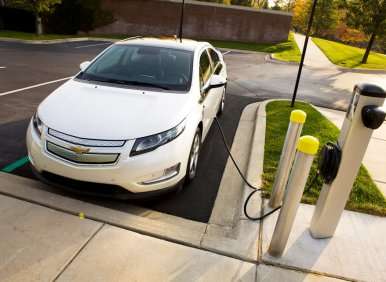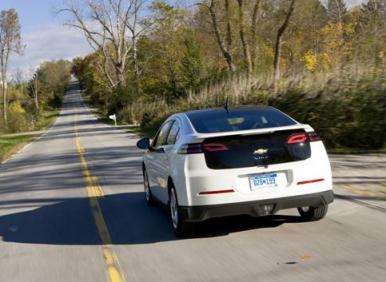Recent Articles
Popular Makes
Body Types
Chevrolet Volt Fire Poses Questions About Safe Handling of Accidented Hybrid Batteries

Do the lithium ion batteries used in hybrid cars like the Chevrolet Volt pose an additional risk to drivers, passengers and emergency first responders at accident scenes? This is exactly the question that the National Highway Traffic Safety Administration will be investigating as it attempts to get to the bottom of whether hybrid cars could require additional changes to standard operating procedures used by wrecking companies, fire and police personnel and even passersby when handling fender benders.
According to an article published by Automotive News, the reason NHTSA is focusing on lithium ion hybrid cars in particular is due to an unexpected fire sparked by a Chevrolet Volt crash test vehicle that was being stored by the Administration at one of its facilities. The Volt spontaneously burst into flames after having sat for almost a month, catching NHTSA officials by surprise and prompting a closer look at the potential for vehicles featuring these types of batteries to pose a risk of conflagration long after they have been removed from the road. Neither General Motors nor NHTSA have been able to duplicate the conditions that led to the fire even after testing additional crashed vehicles.
NHTSA has attempted to keep the inquiry private, although word leaked out concerning not just the crash test Volt fire but also a similar incident that occurred when a Chevrolet Volt owner charged their car at home. As a response to media reports, the Administration released a statement indicating that it did not consider hybrid cars to pose more or less of a fire risk than gasoline or diesel automobiles, but that it felt it was prudent to take a hard look at hybrid crash scene safety in order to provide the best possible information to emergency crews and insurance yards.
General Motors also echoed these sentiments, reiterating that the Chevrolet Volt was not the only vehicle being targeted by the investigation, but that the issue pertained to the larger issue of hybrid accident safety. GM went on to clarify that it has published specific battery handling instructions that are to be implemented after a crash, and that these were not followed by NHTSA personnel storing the wrecked Volt.
What other hybrid automobiles make use of lithium ion batteries? Currently, commercially available lithium ion models include the Chevrolet Volt, the Nissan LEAF, the Ford Transit Connect Electric, and the upcoming Ford Focus Electric. More boutique-oriented electric cars such as those produced by Tesla and Fisker also employ lithium ion technology, and future models of the Toyota Prius (plug-in edition) and the Toyota RAV4 electric will feature this type of power storage system. Most other hybrids use nickel-metal batteries which do not exhibit the same flammable characteristics.
Are vehicles like the Chevrolet Volt - and by extension similar models such as the Nissan Leaf - more dangerous than gasoline-powered automobiles in terms of posing a fire risk? Given the explosive nature of fuel and its fumes, the answer is clearly "no." However, the need to educate concerning the proper disposal, transport and storage of accidented hybrid vehicles is an important one, as indicated by NHTSA's sudden interest. An opportunity now exists to use the recent Volt conflagration as a teaching point rather than a scare tactic in order to prevent any unnecessary backlash against future hybrid technologies.
